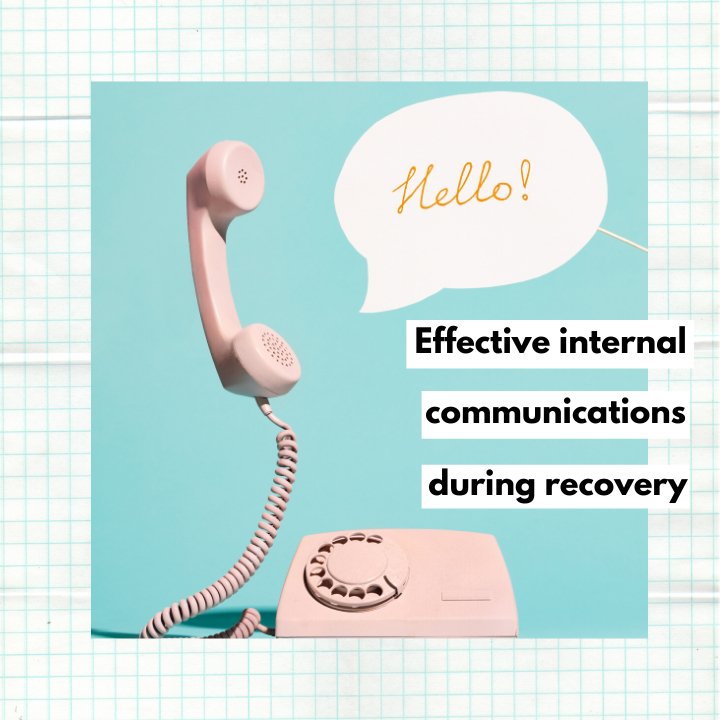We talked earlier in the week about planning your recovery and looking ahead to the future when things start to return to “normal”. Here, we focus specifically on your internal communications, with some top tips for planning and execution.
Your team are the ones who have been with you on this journey. They have supported you through the tough times and always had your back. They have shared in the emotional rollercoaster and helped to celebrate the little wins. Some may have been furloughed, some may have worked different hours due to priorities at home and some have soldiered on, but regardless, they are the ones that will help you build up the business again and bring you back fighting.
How should you communicate with your team?
In a word – personally. There is nothing more powerful than the CEO or Managing Director speaking from the heart to their team. We must accept that face to face meetings aren’t possible right now, so video and conference calls are absolutely the next best thing. If you have a very large team then pre-recording personal video messages will work well. Personal communication helps to make your team feel valued and part of your family.
What should you tell them?
Tell them as much as you can. They’ll need to know what your plans for the business are, what the priorities are, how they can help deliver on those and the timescales involved. Be clear and concise with your delivery and be prepared for questions and perhaps some reservations. If you’re changing tact or introducing something new, the team may be nervous so be open and honest with them about why you’re doing it and the business reasons behind your decisions.
When?
As soon as possible. As your plans evolve, keep your team on side and updated. They need to be the first to know what is happening to the company they work for and how this might affect them. Keep them regularly updated and check in with them throughout the week. Ask for their feedback and use them to troubleshoot and help make decisions – this will ensure your team feel part of the journey.
As mentioned in our previous blog, “Planning for recovery post Covid-19” now is the time to plan your strategy and make the most of some unexpected downtime. Take a step back and get your ducks in a row. This way you can be in the best possible position when the inevitable bounce-back comes and you will feel more confident about the decisions you are making and the delivery of these plans to your team.
Particularly during this time of uncertainty, your team need to be kept up to date on a more regular basis. They need to hear from their leader, even if there is no “new” news to share. Check in with them daily and understand their pressures and emotions.
Say thank you
You probably couldn’t have got this far without them, and you certainly don’t want to be coming back without them, so what can you do to say thank you? (NB, it might actually be to just remember to say thank you!) No one expects you to have all the answers or for you to make a grand gesture, but a little bit of gratitude goes along way.
What you do now and how you act will remain part of your brand’s DNA long after the pandemic is over. Your staff will remember how you made them feel during some of the most uncertain and difficult times in their careers, so be kind, be honest and be open. It means more than you know.
If you’d like any help with shaping your post Covid-19 internal communications activity, we are offering a free 15-minute no-obligation discussion with our team of communications experts. To book your free discussion or to find out more, please email hello@adpr.co.uk.
Communication is critical to your business success, but it needs a plan and strategy to be effective. If your business needs some help, see what we can offer you by checking out our affordable Confident Communication Planning Package.
The Department of Commerce states that 70% of smaller companies go out of business within just one year of experiencing a crisis – we think this is enough of a reason to be prepared! Our Crisis PR 101 guide will give you the tools you need to develop a crisis plan that will protect your business when a crisis strikes. As well as the guide you’ll get top tips from experts to give you more support in building a futureproof plan for your business.





